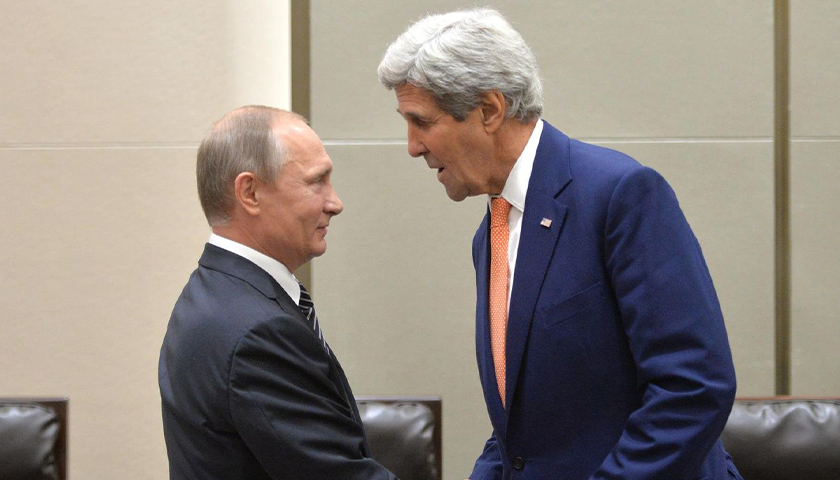Vladimir Putin’s invasion of Ukraine marks the end of the West’s Era of Illusions. It was an era in which Western elites obsessed about solving climate change because the climate crisis was far more dangerous than issues of war and peace and the stability of the international system. They even convinced themselves that climate change causes war, so climate change policy could double as national security policy; and, for many years, the annual round of kumbaya UN climate talks was the apogee of international relations.
In a BBC World Service interview, presidential climate envoy John Kerry expressed concern about the amount of greenhouse gas being emitted from the war in Ukraine. Kerry was just getting warmed up with a string of platitudes that show him as a deluded climate relic, unable to come to terms with the reality that Putin has imposed on the world. “Equally importantly,” Kerry complained, “you’re going to lose people’s focus,” as if the first invasion of a sovereign European country since the Second World War is an annoying distraction. Hopefully, Kerry continued, Putin would realize that Russia’s land is thawing, and the people of Russia are at risk.
Kerry concluded with an expression of pure self-deception, saying he hopes Putin “will help us to stay on track with respect to what we need to do for the climate.” Stay on track? Russia has never hidden its intention to avoid cutting its emissions. Russia’s second Nationally Determined Contribution, submitted in November 2020 under the Paris climate agreement, is to limit its 2030 emissions to “no more than 70% of 1990 levels.” The document is careful to avoid pledging to cut or reduce emissions. The 1990 baseline year was the last one before the collapse of the highly inefficient and heavily polluting centrally planned Soviet economy. Thus, the 70% limit actually enables Russia to increase its emissions by 34% – and that’s before taking account of any changes in forestry and land use that would allow Russia to claim credit for negative emissions.
Read More
